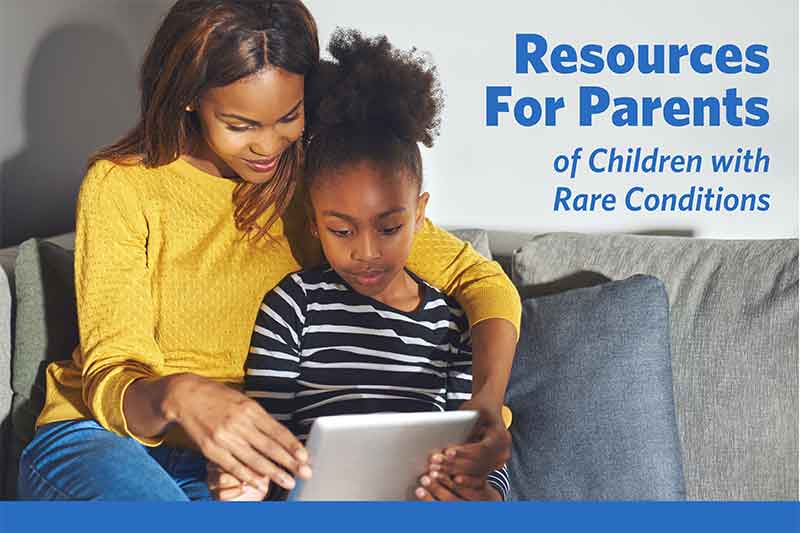
Websites, Social Media, and Publications

Parenting any child comes with challenges. However, parents of children with undiagnosed or rare disorders can easily find themselves adrift without a compass to chart a path forward. For example, suppose your child has a condition not described in scientific literature. In that case, you can find yourself in an information desert, grasping for anything to help you navigate your journey to ensure the best for your child.
It can also be isolating. Parents caring for a child with a rare or undiagnosed condition don’t feel the solidarity experienced on awareness days or connect with people wearing disease-related ribbons and plastic bracelets. In addition, they rarely feel connected to other families due to research protocols that keep scientific findings quiet until they’re published and health privacy laws that prevent genetics labs from connecting families with the same condition.
The good news is that you’re not alone. Fortunately, multiple resources offer ways to connect, information to educate, and advocacy tools. Of course, everyone’s situation is different, so what works for one person may not work for everyone. Hopefully, you can find something helpful for your situation.
Several websites offer credible information for parents. For example, some sites can connect parents with up-to-date research information, others make it possible to connect with others through voluntary registries, and some sites enable parents to get aligned with advocacy issues.
Facebook and other social media platforms have groups that allow families to connect. You can also access up-to-date research and information by including the hashtag #RareDiseases or be part of the conversation by following @ncats_nih_gov and @ORDR.
Various publications are available both digitally and in print, including guides and books that may offer valuable information and support.
While by no means a comprehensive list of resources, we hope you find helpful information through these multiple channels that empower you to become as educated as possible on your child’s condition and get much-needed support.
Your support enables the Center to provide genomic testing for families at no charge. Your cash donation, participation in a fundraising event, gifts of stock, or securities all allow the Center to continue its groundbreaking research leading to discoveries that mean a better future for children with rare childhood conditions. Even simply sharing the message with friends, family, and associates can help provide families with knowledge and support.